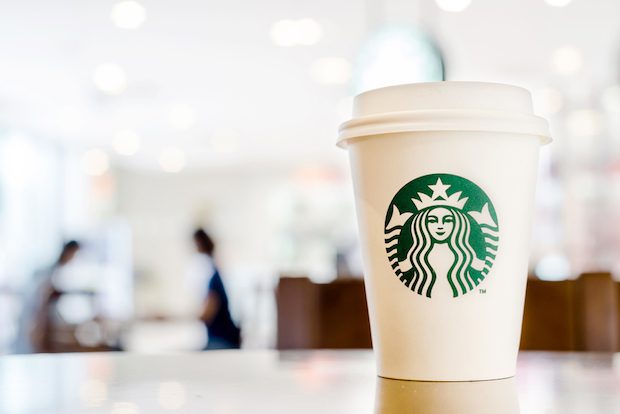Starbucks’s Stupid Policy

When I lived in New York, and would give my houseguests tips for navigating the city on their own, I told them that yes, public toilets are hard to find, but if you buy something at Starbucks, you can use the toilet there. It’s worth it when you really have to go.
It has always struck me as a fair trade. No coffee shop in a heavily trafficked area can afford to let its bathrooms be used by anybody who walks in. In Manhattan, there would be a never-ending stream of tourists lined up in the joint, waiting to use the toilet, and buying nothing.
Besides, cafes, bars, and restaurants are not public spaces, in the sense that a park is. You want to use the facilities or hang out at Starbucks? Then buy something. Sit for hours if you like, nursing that cup of black coffee, but buy the thing. It’s only fair to the merchant. I will go work sometimes for hours in Starbucks, and only buy a single cappuccino. I consider that I’m renting the space — and given the price of their speciality drinks, I call it a bargain.
I’m afraid Starbucks has allowed itself to be bullied into adopting a policy that is going to ruin the experience of being there for lots of customers, especially in its dense urban locations. From the Wall Street Journal:
Starbucks Corp. tried to dig itself out of controversy Monday by attempting to clarify a policy toward nonpaying guests that generated an onslaught of weekend criticism.
The Seattle-based retailer on Saturday had said it would allow all guests in its U.S. company-owned stores to use its cafes, including its restrooms, whether or not they make a purchase. That announcement, which attracted some support, also drew complaints that cafes wouldn’t have enough seats for paying customers and would turn into homeless shelters and drug havens.
On Monday, Starbucks revealed more about the policy, telling The Wall Street Journal that employees now have detailed instructions on what to do if someone is behaving in a disruptive manner, such as smoking, using drugs or alcohol, using restrooms improperly or sleeping.
At issue, in essence, is whether Starbucks views itself as a business that caters to customers, or a quasi-public place generally welcome to all. The uproar, which follows the arrest last month of two black men who wanted to use a Starbucks bathroom in Philadelphia, demonstrates the unusual spot that the nation’s biggest coffee chain holds in American culture.
While many other restaurants and retailers also must manage the issue of lingering customers and nonpaying guests who come in to use restrooms, Starbucks has promoted itself as providing a “third place” between home and work where people can freely exchange ideas. It essentially pioneered the idea that is now generating controversy.
If the homeless, especially the mentally ill homeless, start to settle down in Starbucks shops, most of the paying customers will leave. This summer, if Starbucks stores in Manhattan fill up with tourists lined up to use the toilet, going there to drink coffee will be an unpleasant experience. So people will find other alternatives.
I’m in Starbucks a lot. I’d prefer to work on principle in CC’s, the locally owned chain, but the coffee is better at Starbucks. But if the new policy causes my local Starbucks to turn into an unpleasant place, I’ll just go to CC’s. So will everybody else.

Subscribe for as little as $5/mo to start commenting on Rod’s blog.